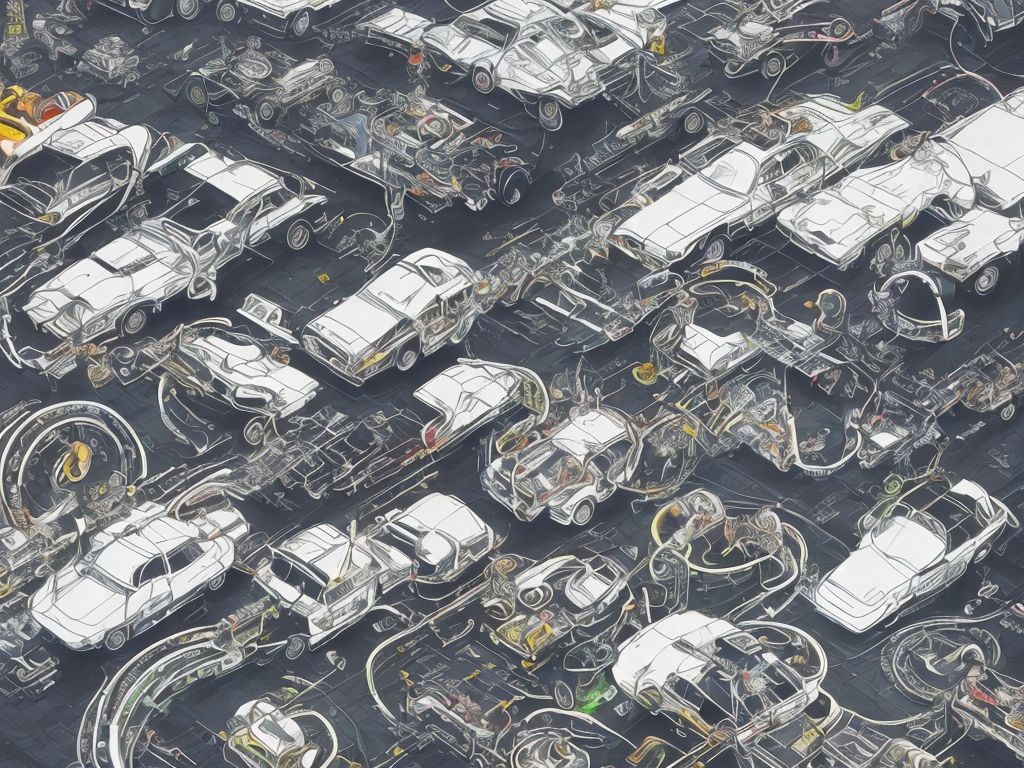
How To Improve Car Mileage
With rising fuel prices and growing concerns about the environment, improving car mileage has become a top priority for many drivers. Not only can improving car mileage save you money at the pump, but it can also reduce your carbon footprint and promote a more sustainable lifestyle. In this article, we will explore various tips and tricks to help you improve your car's mileage and achieve better fuel efficiency.
1. Keep Up with Regular Maintenance
Perhaps the most important step in improving car mileage is to ensure that your vehicle is properly maintained. Regular maintenance, such as oil changes, air filter replacements, and tire rotations, can significantly improve your car's fuel efficiency. A well-maintained engine runs more efficiently and burns fuel more effectively, leading to better mileage. Additionally, make sure your tires are properly inflated, as underinflated tires create more resistance and decrease fuel efficiency.
2. Drive Smoothly and Steadily
Aggressive driving habits, such as rapid acceleration and abrupt braking, can significantly decrease your car's mileage. By adopting a smoother and more steady driving style, you can improve your fuel efficiency. Gradually accelerating and decelerating, maintaining a consistent speed, and avoiding idling for extended periods can all contribute to better mileage. It is also advisable to use cruise control whenever possible, as it helps maintain a constant speed and reduces unnecessary fuel consumption.
3. Reduce Weight and Drag
Carrying around unnecessary weight increases fuel consumption, so it is essential to declutter your car and remove any items that are not needed for your journey. Additionally, roof racks, bike racks, and other external attachments create aerodynamic drag, which can dramatically reduce mileage. If you are not using these attachments, it is best to remove them to minimize wind resistance and improve fuel efficiency.
4. Plan Your Routes Efficiently
Planning your routes in advance can help avoid heavy traffic, construction zones, and other congested areas, which can negatively impact your car's mileage. Using navigation systems or smartphone apps that provide real-time traffic updates can assist you in finding the most efficient routes. By choosing less congested roads, you can drive at a more consistent speed, reduce frequent stops, and ultimately improve fuel efficiency.
5. Use the Proper Octane Level
Many drivers mistakenly believe that using a higher octane gasoline will improve their car's mileage. However, most modern engines are designed to operate optimally with regular octane gasoline (usually 87). Using premium or high-octane fuel in such engines provides no significant benefits and is an unnecessary expense. Therefore, it is essential to follow the manufacturer's recommendation and select the appropriate fuel for your vehicle to maximize mileage.
6. Avoid Excessive Idling
Leaving your car running while parked or waiting at a stop for an extended period consumes fuel unnecessarily and reduces mileage. If you anticipate idling for more than a minute, it is best to turn off your engine. Restarting the engine uses less fuel than idling, so it is more efficient to turn off your car and restart it when necessary.
7. Consider Carpooling or Public Transportation
Reducing the number of vehicles on the road through carpooling or using public transportation can significantly improve overall fuel efficiency. By sharing the ride with others, you not only reduce your carbon footprint but also save on fuel expenses. Special carpool lanes are often less congested, allowing for smoother and faster journeys, further enhancing mileage.
8. Utilize Technology
Modern advances in technology have made it easier than ever to monitor and improve your car's mileage. Installing a fuel economy gauge or using smartphone apps can provide real-time feedback on your driving habits and help you make adjustments accordingly. These tools can track factors such as acceleration, braking, and idling time, allowing you to identify areas for improvement and achieve better fuel efficiency.
In conclusion, improving car mileage is a combination of proactive maintenance, adopting efficient driving habits, and making smart choices. By keeping up with regular maintenance, driving smoothly, reducing weight and drag, planning routes efficiently, using the proper octane level, avoiding excessive idling, considering alternative transportation options, and utilizing technology, you can significantly improve your car's mileage and contribute to a more sustainable and environmentally friendly future. So, start implementing these tips today and enjoy the benefits of better fuel efficiency.
 Self-Instruct
Self-Instruct